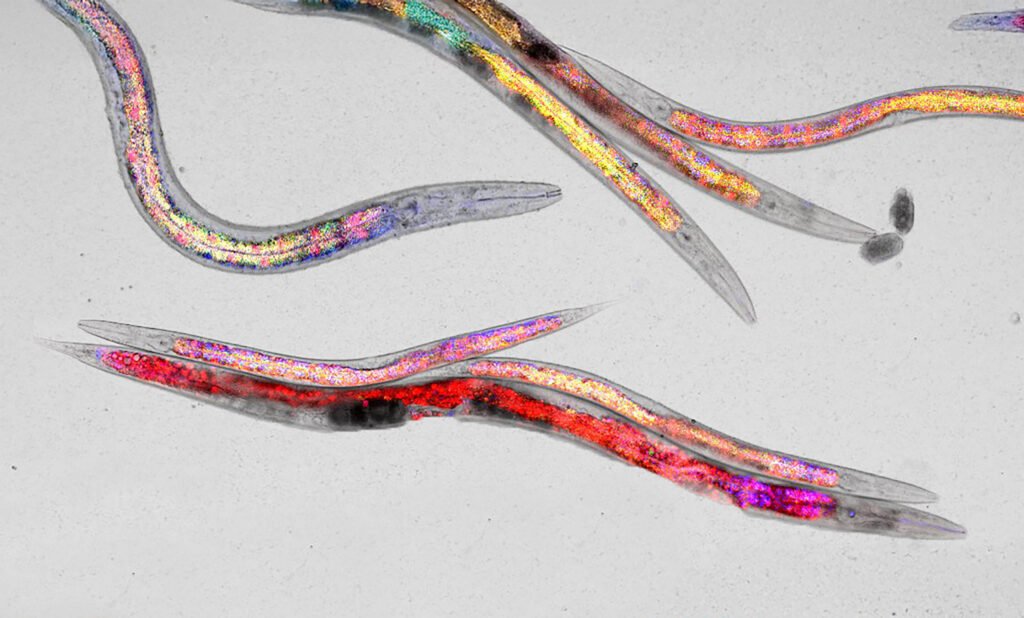A groundbreaking study conducted by researchers at the University of Basel in Switzerland has revealed the fascinating connection between diet and healthy aging. The study, recently published in Nature Communications, focused on the impact of certain nutrients on the aging process in the tiny worm Caenorhabditis elegans.
As people live longer lives, the focus has shifted from simply living longer to living healthier. This concept, known as healthspan, refers to the number of years spent in good health rather than just the total lifespan. The research team led by Anne Spang found that specific RNA molecules in food can play a crucial role in promoting fitness and health in old age.
One of the key findings of the study is that a balanced diet can prevent the formation of harmful protein aggregates that are typically associated with aging and age-related diseases. As the body ages, it becomes less efficient at removing damaged proteins, leading to the accumulation of these harmful aggregates. However, certain components in the nematode’s diet, such as double-stranded RNA molecules found in bacteria, activate quality-control mechanisms that protect cells from stress and damage.
The researchers observed that the activation of autophagy, a cellular cleanup process that degrades and recycles damaged proteins, plays a vital role in slowing down the aging process. This mechanism reduces protein aggregation and cellular aging, leading to healthier aging overall. The study also revealed that the gut communicates with other organs in the body, spreading the protective effects of a balanced diet throughout the entire organism.
The worms exposed to a balanced diet were found to be more active and healthier in old age, thanks to the protective effects of dietary RNA species. These findings highlight the significant impact of diet on healthspan and suggest that specific food components can stimulate the body’s protective mechanisms to extend lifespan.
While the study was conducted on nematodes, the implications for human health are significant. The research opens up new possibilities for understanding how diet can influence aging and age-related diseases in humans. By identifying the beneficial effects of individual nutrients, researchers hope to uncover new strategies for promoting healthy aging and preventing age-related diseases.
In conclusion, the study reinforces the idea that what we eat can have a profound impact on how we age. By incorporating specific nutrients into our diets, we may be able to enhance our healthspan and enjoy a longer, healthier life. The research conducted by the University of Basel sheds light on the intricate relationship between diet and aging, paving the way for future discoveries in the field of longevity research.


